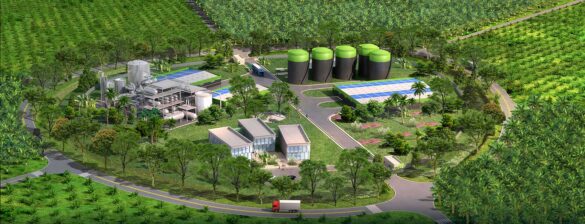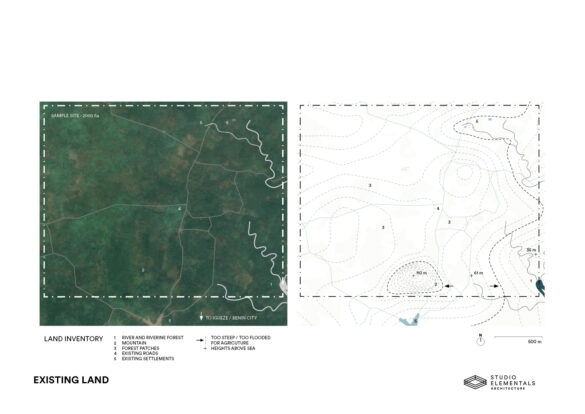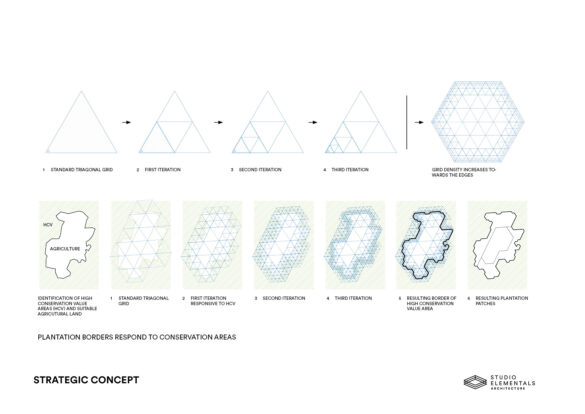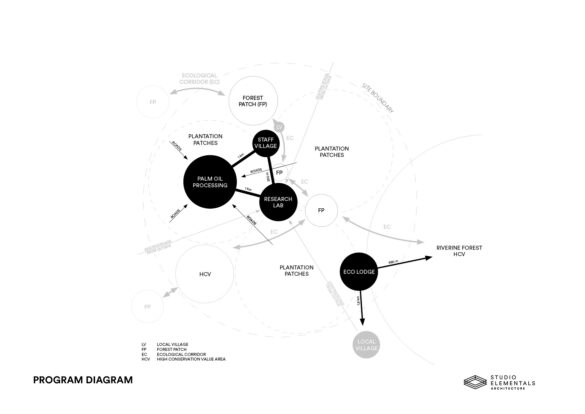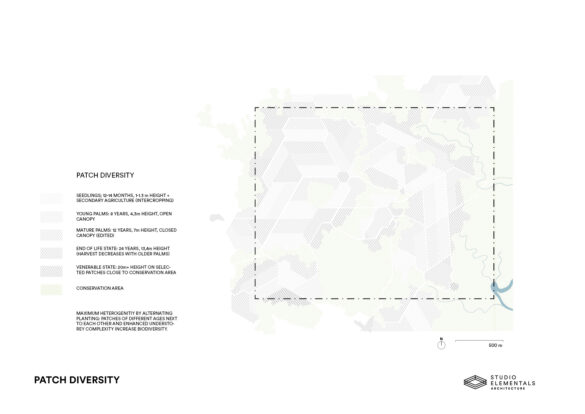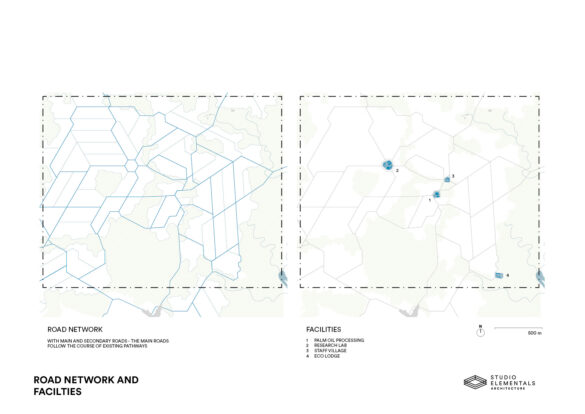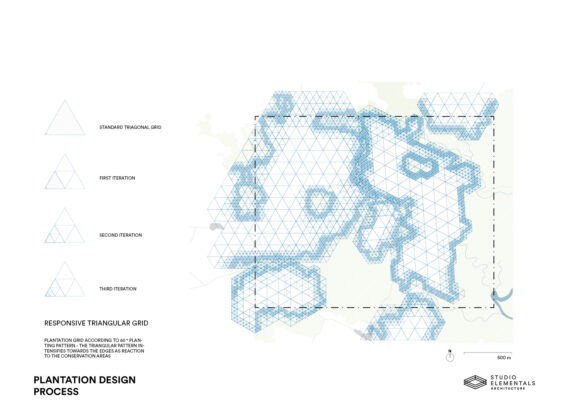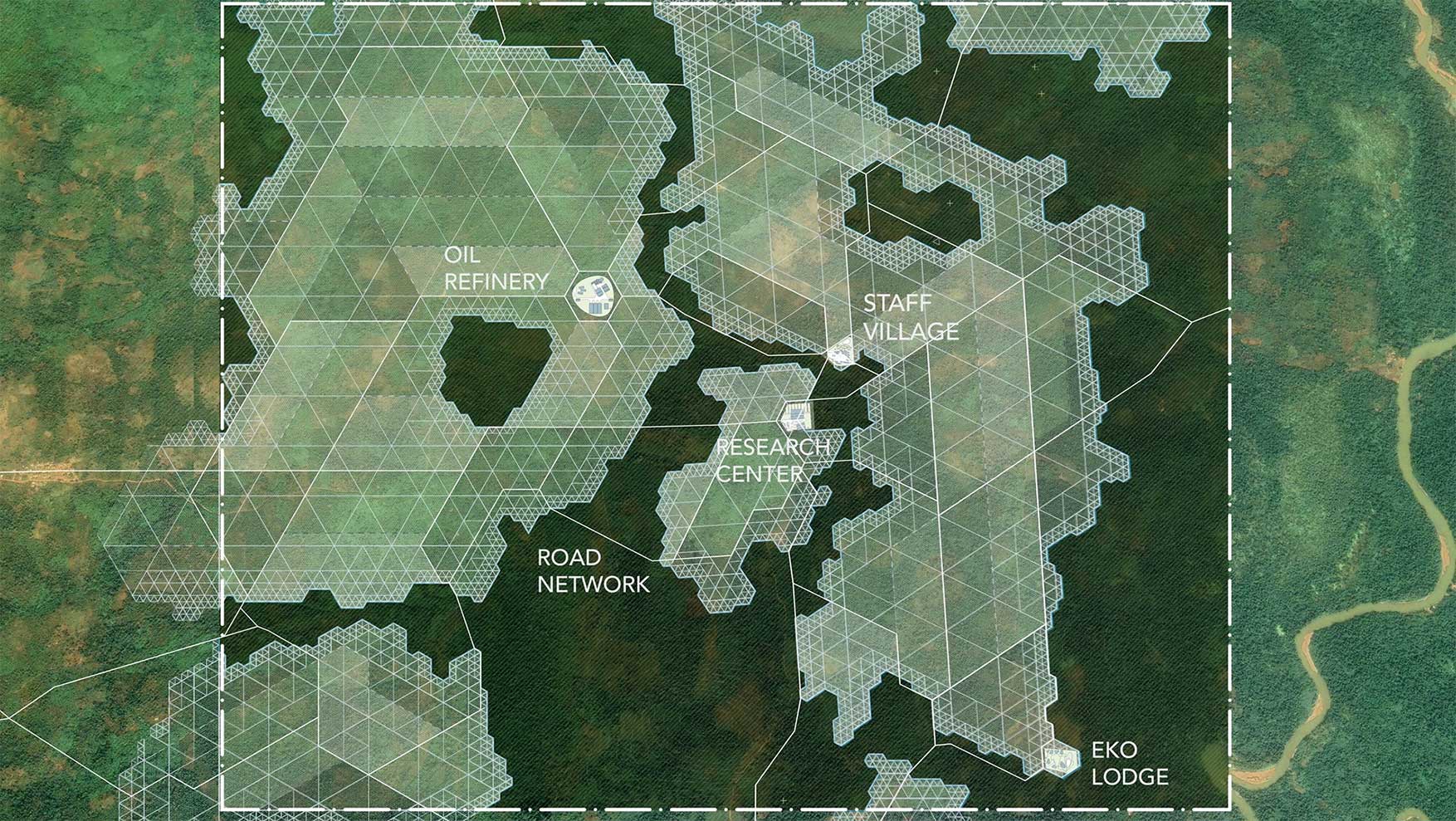
.
Agricultural Design Responsive to Forest Conservation
.
The Palm Hub Design Prototype is a fictional model for a sustainable palm plantation, explained through perspective images, drawings, diagrams, and a physical model. The prototype includes strategic planning concepts that can be applied to any given location in Nigeria.
Project Background:
The use of palm oil is deeply routed in Nigeria’s culture, but currently, the country is not able to satisfy its demand and imports more than 800 000 tons of palm oil per year.
Solution:
The project envisions a productive landscape, which starts with reforestation and connecting valuable existing forest patches with ecological corridors, which protect the plantation against soil erosion, support drainage and create valuable ecosystems. The Palm Hub Design Prototype accommodates a refinery, a research lab, a staff village and an eco-lodge.
The project has the potential to secure local livelihoods and respects cultural heritage such as sacred trees and rocks with 40% of the land dedicated as forest reserve, which at the same time protects the plantation against erosion and creates natural buffer zones to existing settlements. Patch Diversity and enhanced understory complexity increase biodiversity.
The design consists of responsive equilateral triangular plantation patches to allow for a higher yield on the same surface, 20 % shorter road distances and adaptability to valuable ecosystems. The resulting layout complies with guidelines of the round table of sustainable palm oil, the high carbon stock approach and a zero deforestation policy.
Architecture, Landscaping and Spatial Planning by Studio Elementals
Design Team:
Stefanie Adisa Theuretzbacher, Kofoworola Tubi
Landscaping Design:
Chrili Car
Project Duration:
Concept Design Completed, 2019
Location:
Edo State, Nigeria
.


